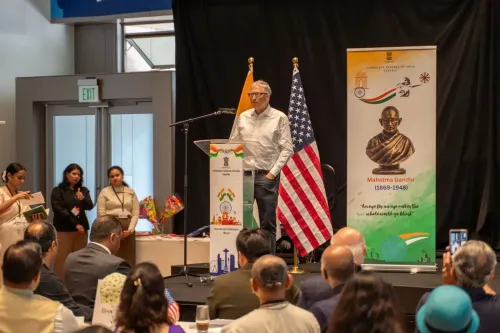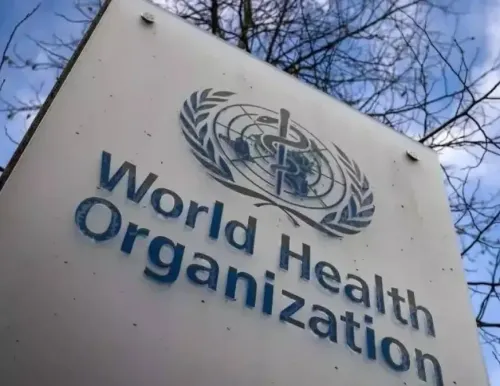Why Are Rights Groups Criticizing the Pakistani Government for Its Campaign Against Media and NGOs?

Synopsis
Key Takeaways
- Rights groups are united against the smear campaign.
- The campaign threatens democratic freedoms.
- Independent media faces heightened risks.
- Government's narrative endangers civil society.
- Calls for immediate retraction of the campaign.
Islamabad, Oct 3 (NationPress) A coalition of human rights organizations and advocacy groups has condemned the actions of the Pakistani government for launching a smear campaign targeting the nation’s media and non-governmental organizations (NGOs), deeming it “profoundly irresponsible.”
The Human Rights Commission of Pakistan, alongside various advocacy bodies including the Women's Action Forum – Lahore, Shirkat Gah (Women’s Research Centre), South Asia Partnership-Pakistan, Simorgh (a feminist activist organization), and the Centre for Legal Aid, Assistance and Settlement (CLAAS) have issued a strong rebuke of a recent advertisement funded by the Ministry of Information and Broadcasting that characterizes journalists, NGO personnel, and 'freelance' researchers as potential agents of ‘enemy propaganda.’
“Labeling civil society representatives and independent media as participants in an information conflict is profoundly irresponsible and compromises the very freedoms that uphold a democratic framework. Journalists and NGOs in Pakistan are already subjected to extremely restrictive conditions, including ongoing harassment, burdensome registration and reporting protocols, arbitrary funding scrutiny, and a climate of distrust fueled by ambiguous security narratives,” stated a joint release from the groups.
“Depicting their efforts as a menace to national security further jeopardizes individuals dedicated to safeguarding rights and informing the populace. Such rhetoric has historically been employed to rationalize surveillance, intimidation, and even physical assaults on journalists and human rights advocates,” the statement continued.
The groups highlighted that encouraging citizens to report ‘suspicious’ NGO staff or reporters without any legal protections risks legitimizing unwarranted targeting, harassment, and censorship.
Moreover, they indicated that framing digital platforms primarily as a means of entrapment designed to instigate ‘unrest, fear, and chaos’ will exacerbate the chilling impact on freedom of expression already instituted by the Prevention of Electronic Crimes Act and its amendments, along with other laws in Pakistan.
“This will dissuade independent journalism and obstruct the essential humanitarian and rights-oriented services that many organizations provide,” the coalition asserted.
The groups urged the Pakistani government to retract its campaign promptly, avoid equating legitimate civil society efforts with hostile actions, and foster an environment where journalists and human rights organizations can operate safely and independently throughout the nation.









